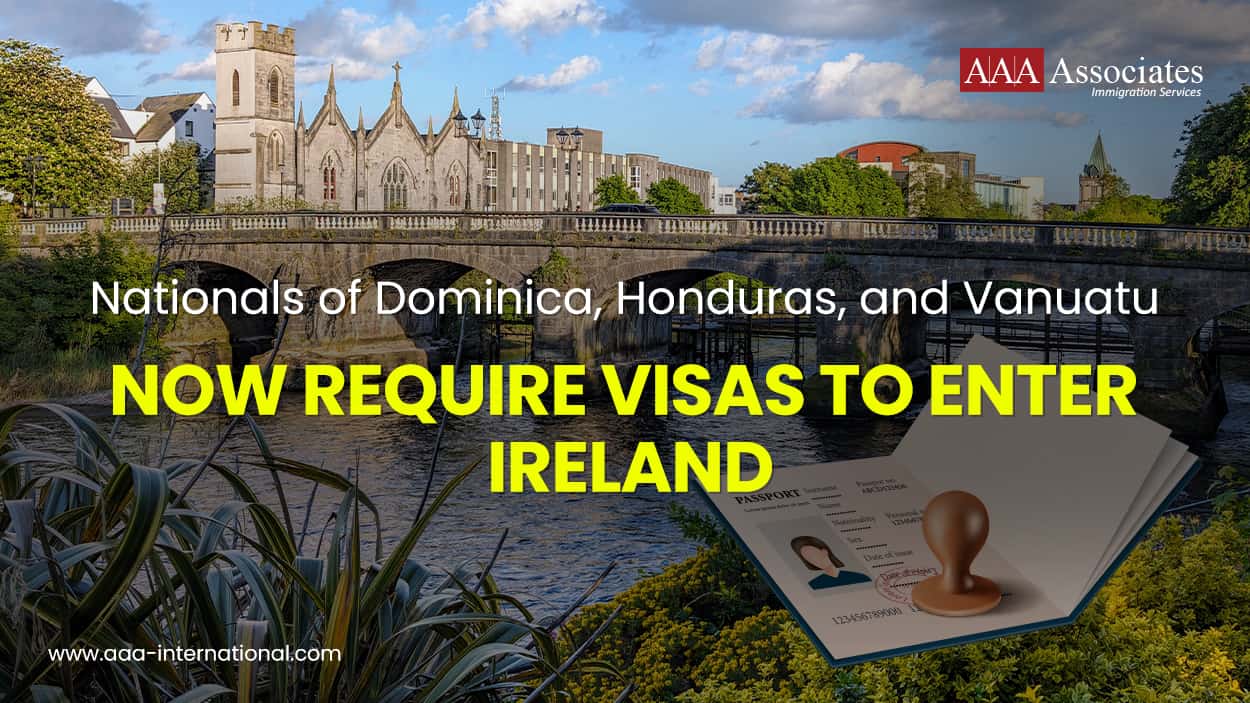Ireland is no longer on the list of Honduras, Vanuatu, or Dominica’s visa-free countries, as a result of a policy that came into effect on the 7th of March, 2024. This policy made it compulsory for people with Dominican, Honduran, and Vanuatu passports to obtain a visa before visiting Ireland. This article discusses this change, its consequences, and alternatives for tourists from these countries.
Brief Idea
• Reasoning Behind the Change
• Visa Requirements
• Exceptions and Transitional Measures
• Implications For Travelers
• Faqs
Reasoning Behind the Change
Ireland’s decision to remove itself from Dominica, Honduras, and Vanuatu passport’s visa-free countries list is part of the current shift in immigration control policy. Ireland’s government wants to enhance border control and synchronize visa policies with the UK and Schengen area in order to ensure efficiency and strengthen border management.
Visa Requirements
The new visa restriction applies to all travel purposes, whether you’re visiting on business, leisure, visiting friends and relatives, vacationing, or have any other reason. Depending on the purpose and length of the visit, Ireland will require a different visa type. Common visa categories for these scenarios include:
- Short-Stay Visa: Suitable for tourism, meeting friends and relatives, and business conferences. The maximum period for stay is 90 days.
- Long-Stay Visa: If you’re planning on staying for more than 90 days, which is useful for people pursuing education in Ireland, or taking a job along with a work permit, or for people who seek residence in Ireland.
Exceptions and Transitional Measures
There are some exceptions to the rule. These exemptions apply to individuals who can provide documented proof of:
- Travel bookings and payments made before March 7, 2024.
- Medical emergencies relating to a family member’s health, or attending events such as weddings or funerals of a family member (with proper proof).
- Students who have been accepted at an Irish university. With official confirmation from the institute.
- Persons with valid employment permits issued by Ireland.
- Business visitor with proof of confirmed business arrangement.
Implications For Travelers
Citizens of Dominica, Honduras, and Vanuatu visiting Ireland need to factor in how the new visa requirements can affect their plans. Here’s a breakdown of the implications:
- Visa Application Process: Conduct proper research as to which type of visa you need and gather the necessary paperwork as well as submit the application sufficiently early for the intended travel. General processing time may vary depending on the individual’s visa type and the workload in the embassy or consulate of Ireland.
- Travel Costs: Visa application fees add an extra cost to your traveling expenses. You should be familiar with the related costs beforehand.
- Potential Delays: It may be also useful to consider that more time will be needed for visa processing. Avoid booking any flight or accommodation that cannot be canceled, in case you do not get your visa.
FAQs
Q: Is it mandatory for me to get a visa if I’m just transiting through Ireland?
A: Yes, citizens of Dominica, Honduras, and Vanuatu need a transit visa to go through any Irish airport en route to another country.
Q: What happens if I have a Dominica passport and it is visa-free to other European countries?
A: Even if you have visa-free access to other European countries, entering Ireland requires an Irish visa.
Q: Is it possible to obtain a visa upon arrival in Ireland?
A: No, as of the 7th of march 2024, all visa applications from Dominica, Honduras, and Vanuatu should be submitted beforehand at the Ireland embassy or Irish consulate in the applicant’s home country.
Conclusion
While this new change might put a dent in Dominica, Honduras, and Vanuatu citizen’s travel plans, careful research and planning will ensure smooth travel.
